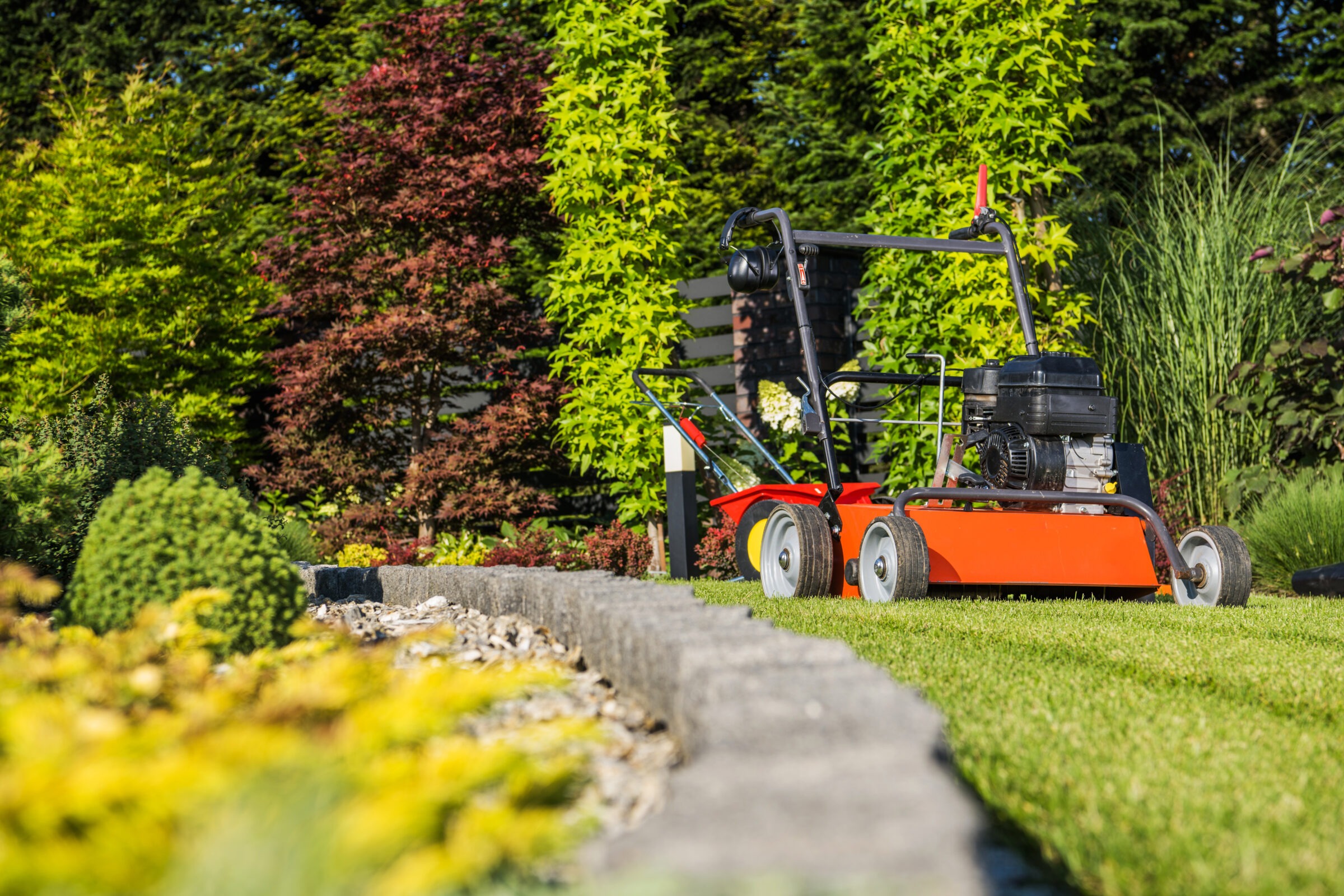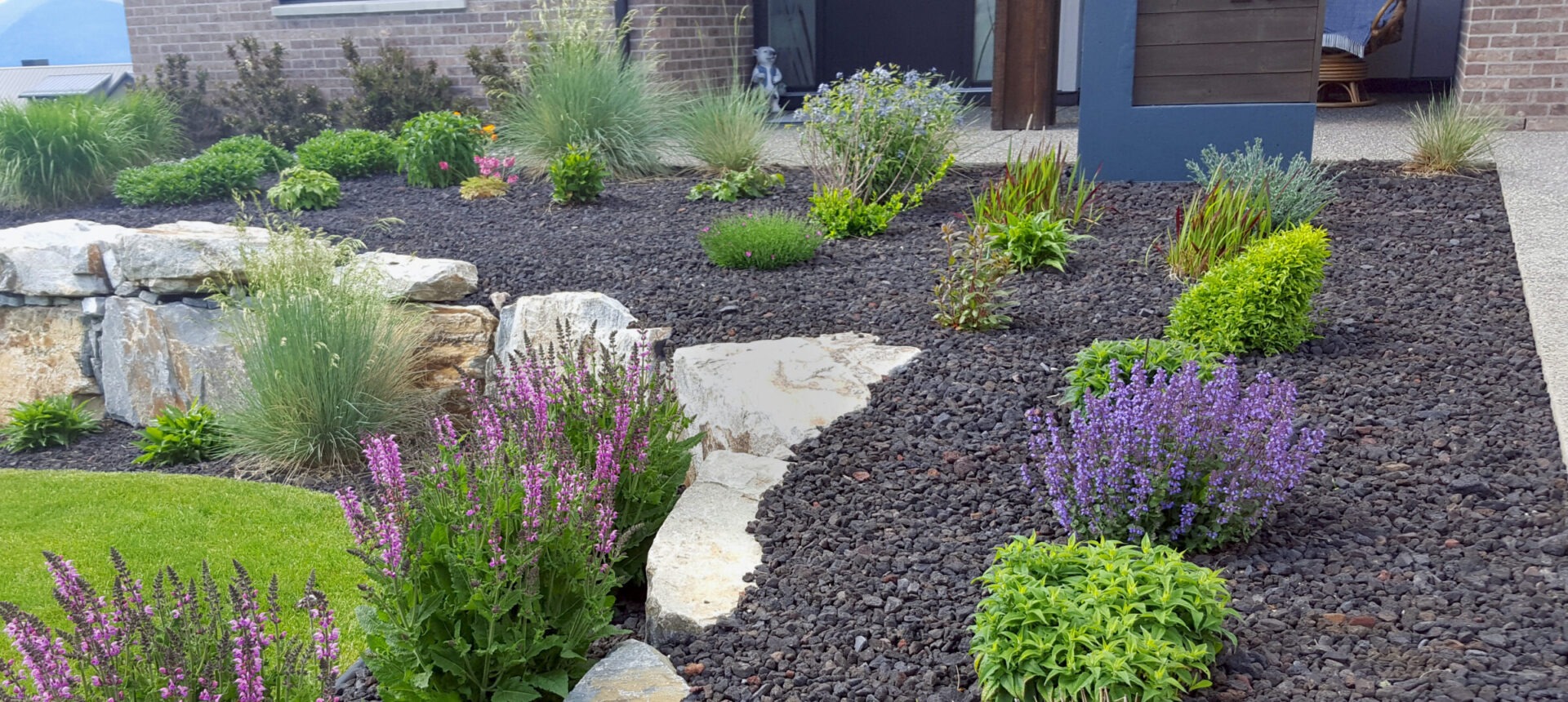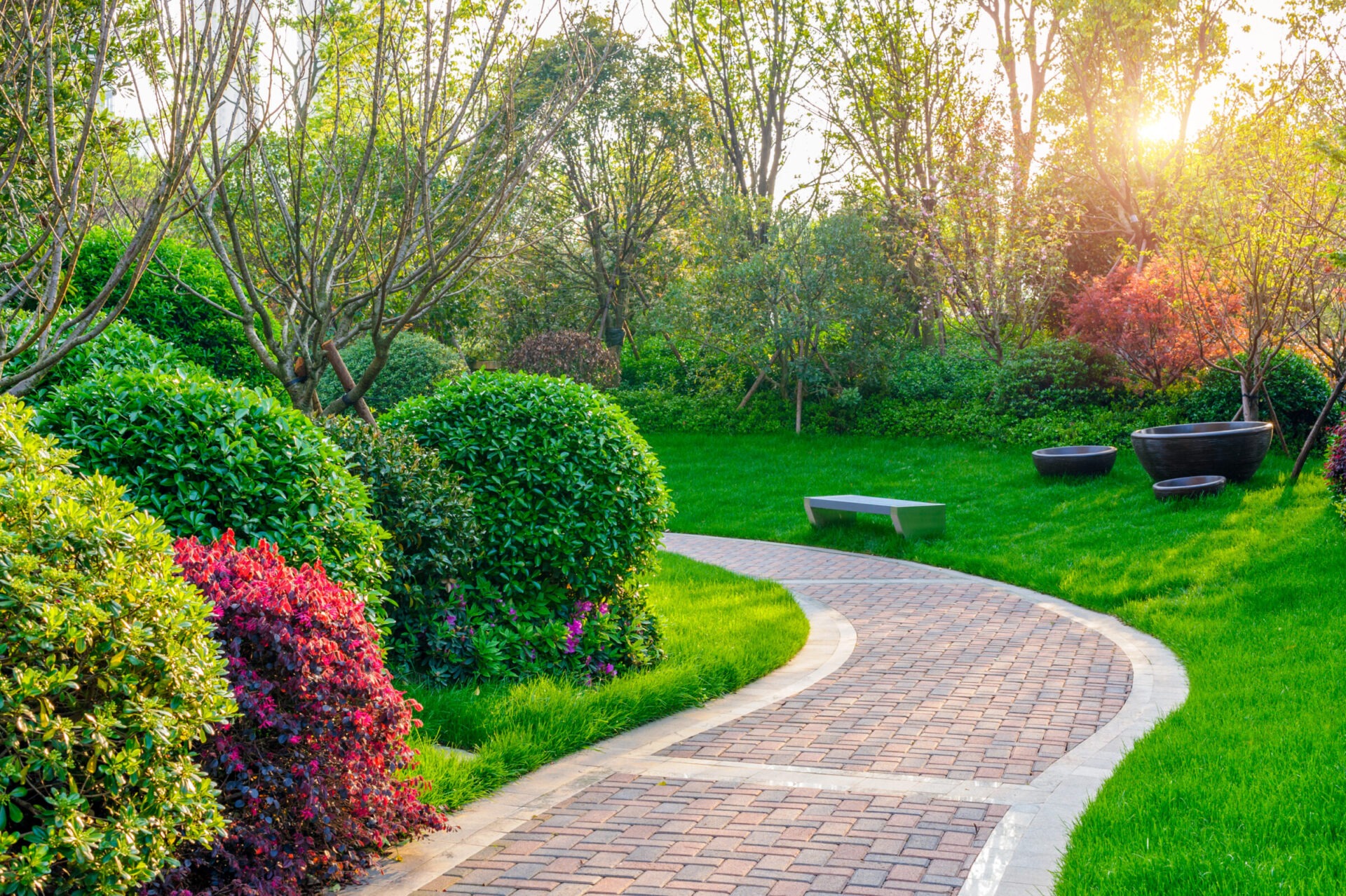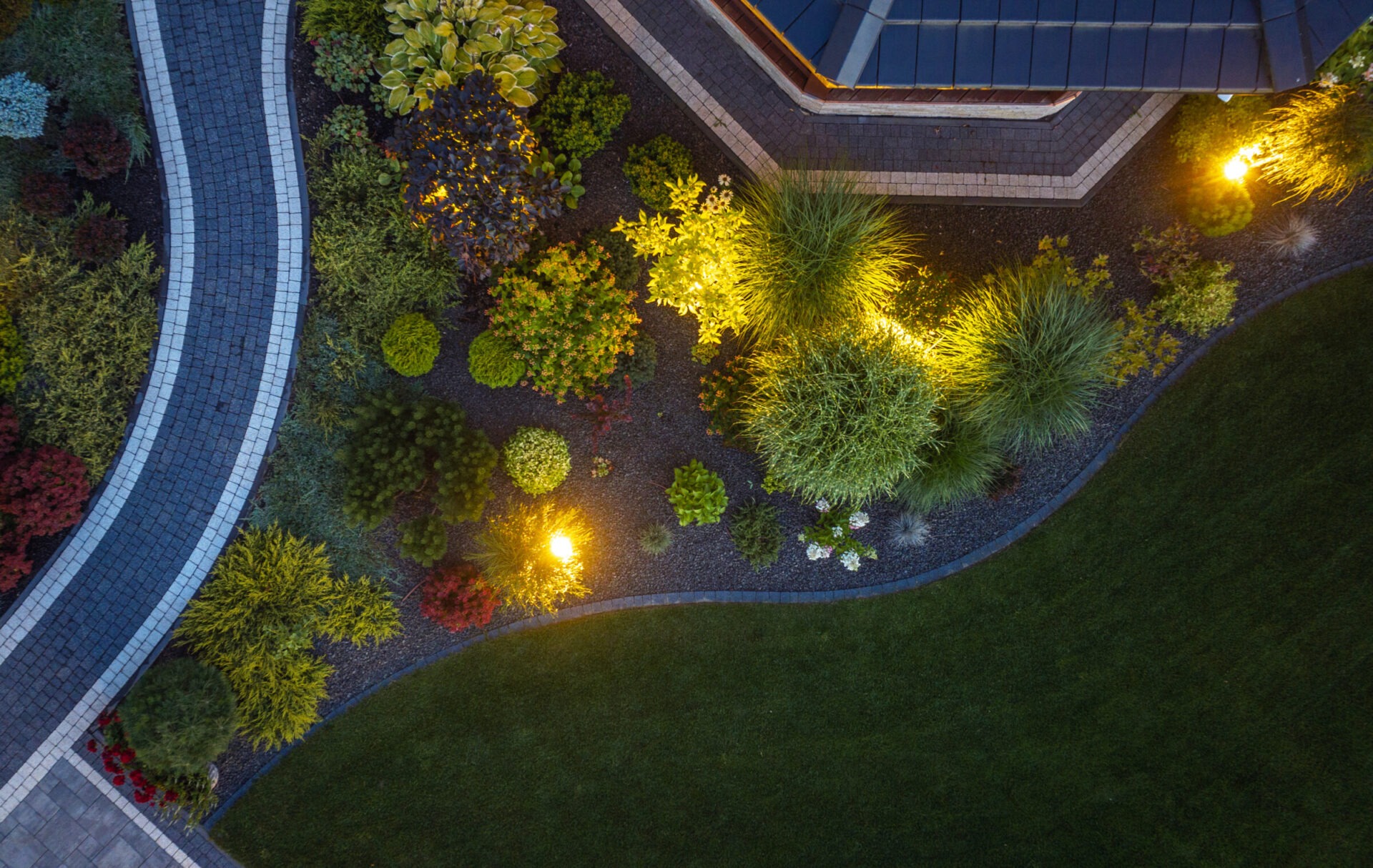Low-Maintenance Landscaping Ideas for Busy Homeowners

Homeowners with busy schedules often find maintaining a lush, beautiful landscape daunting and time-consuming. The pressure to keep a stunning yard can feel overwhelming, consuming valuable free time. Seasonal climate challenges in regions like Massachusetts, with summer droughts, further complicate matters, leading to frustration and the feeling that achieving an attractive garden requires endless upkeep.
Imagine struggling to find time to water your plants in the heat, only to see them wither during a drought. Picture weekends lost to weeding and lawn maintenance, leaving no time for relaxation. Visualize the constant worry about whether your garden will survive seasonal extremes, adding stress to your already packed life. The desire for curb appeal conflicts with the reality of limited time, creating a seemingly unsolvable problem.
The solution lies in strategic low-maintenance landscaping. By incorporating drought-tolerant plants like sedum and lavender, opting for perennials such as hostas and daylilies, and utilizing mulch and groundcovers like creeping thyme, you can minimize water usage, control weeds, and enhance soil health. Introducing hardscape elements like patios and stone pathways reduces lawn area, while smart irrigation systems and container gardening further simplify upkeep. Choosing low-maintenance trees and shrubs, considering sustainable lawn alternatives, and designing for local climate conditions in Massachusetts ensures a vibrant, beautiful garden without constant effort.
To find more landscaping tips, check out our Ultimate Landscaping Inspiration Guide.
Drought-Resistant Landscaping Ideas

Embrace Drought-Tolerant Plants
One of the simplest ways to achieve a low-maintenance landscape is to choose plants that thrive naturally in dry conditions. Drought-tolerant plants reduce water usage, survive harsh summers, and look fantastic with minimal care.
Top Drought-Tolerant Plants:
- Sedum: These hardy, succulent plants are known for their thick, fleshy leaves that store water efficiently. They come in a wide range of colors and forms, from low-growing groundcovers to taller, upright varieties. Sedums are excellent for rock gardens, borders, and containers, thriving in well-draining soil and full sun. They are drought-tolerant and require minimal watering, making them perfect for low-maintenance landscapes. Their ability to attract pollinators like bees and butterflies adds ecological value to the garden.
- Lavender: Celebrated for its fragrant purple blooms and silvery foliage, lavender is a classic choice for dry, sunny gardens. It thrives in well-drained, even gravelly, soil and requires full sun. Lavender’s aromatic oils make it deer-resistant, and its flowers are excellent for attracting bees and other beneficial insects. It’s also widely used for its culinary and medicinal properties. Regular light pruning after flowering encourages healthy growth and prolongs its lifespan.
- Russian Sage: This resilient and striking perennial is known for its airy, silvery-gray foliage and spires of purple-blue flowers. It thrives in poor, dry soils and full sun, making it an ideal choice for low-water gardens. Russian sage is drought-tolerant and requires minimal maintenance. Its tall, upright form adds vertical interest to the landscape, and its long blooming period provides color from mid-summer to fall. It is also deer-resistant and attracts pollinators.
- Ornamental Grasses: This diverse group of plants adds texture, movement, and visual interest to the garden with little water. Varieties like Blue Fescue and Feather Reed Grass offer unique forms and colors. Blue Fescue forms compact mounds of silvery-blue foliage, perfect for edging or rock gardens. Feather Reed Grass provides tall, vertical plumes that catch the light and sway in the breeze, adding drama to the landscape. Ornamental grasses are generally low-maintenance, requiring minimal watering and fertilization. They are also relatively pest and disease-free, making them an excellent choice for busy homeowners.
All the plants listed above naturally adapt to the summer droughts commonly experienced in Massachusetts, significantly reducing your watering duties.
Opt for Perennials Instead of Annuals
Annuals require replanting each season, consuming significant time and resources. Perennials, however, return year after year, providing ongoing beauty with minimal maintenance.
Recommended Low-Maintenance Perennials:
- Hostas: Excellent shade-tolerant plants requiring minimal care.
- Daylilies: Adaptable, colorful, and drought-tolerant.
- Coneflowers: Hardy perennials are attractive to pollinators and require little watering.
- Black-eyed Susans: Vibrant flowers thriving even in neglected gardens.
Perennials will consistently enhance your garden while significantly cutting down on annual planting efforts.
Utilize Mulch and Groundcovers
Mulching is an essential strategy for any low-maintenance landscape. Mulch helps retain moisture, suppresses weeds, and enriches the soil as it decomposes.
Benefits of Mulching:
- Reduces Watering: Keeps soil moist longer, requiring less irrigation.
- Controls Weeds: Suppresses weed growth, minimizing weeding tasks.
- Enhances Soil Health: Adds nutrients and improves soil structure over time.
Groundcovers further simplify maintenance by naturally suppressing weeds and preventing soil erosion.
Easy Groundcover Options:
- Creeping Thyme: Attractive, aromatic groundcover thriving in sunny, dry areas.
- Pachysandra: Dense, shade-loving foliage covers the soil quickly.
- Ajuga: Rapidly spreading plant with striking foliage and flowers, perfect for shaded areas.
Incorporating mulch and groundcovers dramatically reduces garden maintenance, leaving your landscape tidy with minimal effort.
Easy Landscaping Ideas for a Gorgeous Design

Introduce Hardscape Elements
Reducing your lawn area through strategic hardscaping significantly minimizes yard maintenance. Hardscape features like patios, pathways, and decks are both functional and visually appealing.
Popular Hardscape Ideas:
- Patios: Create inviting outdoor spaces perfect for entertaining or relaxing.
- Stone Pathways: Provide access through your landscape while reducing grassy areas needing care.
- Decks: Extend your living space outdoors, significantly cutting down lawn size.
- Retaining Walls: Manage slopes and add structural interest with minimal ongoing care.
Using quality materials suited to New England’s varying climate ensures long-term durability and minimal upkeep.
Design Smart Irrigation Systems
An efficient irrigation system saves water, time, and money. Automated irrigation, particularly drip irrigation, targets water directly to plant roots, significantly cutting down on waste.
Benefits of Drip Irrigation:
- Water Efficiency: Reduces evaporation and runoff, saving water during drought conditions.
- Automated Convenience: Scheduled watering reduces daily garden chores.
- Plant Health: Promotes deeper root growth, making plants more drought-tolerant.
Implementing smart irrigation ensures your garden remains vibrant and healthy with little daily intervention.
Choose Low-Maintenance Trees and Shrubs
Trees and shrubs form the backbone of your landscape, offering structure and beauty. Selecting low-maintenance varieties minimizes pruning, watering, and pest control tasks.
Easy-to-Care-for Trees and Shrubs:
- Evergreen Shrubs: Boxwoods and junipers maintain year-round appeal without frequent trimming.
- Flowering Shrubs: Hydrangeas and lilacs require minimal care beyond occasional pruning.
- Ornamental Trees: Redbuds and dogwoods provide beautiful blooms without extensive maintenance.
Strategically placed trees and shrubs can create focal points while requiring very little ongoing effort.
Container Gardening Simplifies Maintenance
Using containers allows you to control soil quality, watering, and plant placement more efficiently. Containers can be easily moved for optimal sunlight exposure and seasonally updated for interest.
Container Gardening Tips:
- Choose Large Containers: They retain moisture better, requiring less frequent watering.
- Opt for Self-Watering Containers: Minimize your watering tasks by using containers designed to self-regulate moisture.
- Plant Drought-Tolerant Varieties: Succulents, grasses, and herbs thrive in container settings with minimal care.
Container gardening adds versatility and ease, ideal for busy homeowners seeking beautiful yet manageable landscapes.
Strategic Plant Placement
Thoughtful landscape design reduces maintenance. Grouping plants with similar watering and sunlight needs simplifies your gardening tasks.
Benefits of Strategic Placement:
- Efficient Watering: Easier irrigation when similar-needs plants are grouped.
- Reduced Disease Spread: Proper spacing and plant selection prevent overcrowding, reducing disease risk.
- Simplified Maintenance: Easier pruning and cleanup when plants share similar growth habits.
Careful plant placement results in a neat, organized landscape requiring minimal daily intervention.
Low-Maintenance Landscaping Ideas

Sustainable Lawn Alternatives
Lawns often demand substantial maintenance. Sustainable lawn alternatives, like clover or ornamental grasses, require significantly less upkeep and water.
Alternative Lawn Options:
- Clover: Stays green with minimal water and naturally enriches soil by fixing nitrogen.
- Ornamental Grasses: Provide visual interest and require less watering, mowing, and fertilization.
- Artificial Turf: Ideal for areas with heavy use, requiring virtually no maintenance.
Implementing sustainable lawn alternatives reduces your workload while maintaining an attractive, eco-friendly yard.
Consider Local Climate Conditions
In Massachusetts, seasonal drought conditions and cold winters require special consideration in your landscape design. Choosing plants adapted to the local climate ensures resilience and minimal maintenance.
Climate-Specific Tips:
- Winter-Hardy Plants: Creating a thriving garden in regions with severe winters requires careful plant selection. To ensure your landscape flourishes year after year, prioritize perennials and shrubs that are naturally resilient to cold temperatures and can endure extended periods of frost and snow cover without demanding specialized winterization efforts. Opting for hardy varieties will minimize the need for protective measures like wrapping, mulching, or bringing plants indoors, thus reducing maintenance and enhancing the garden’s long-term sustainability. Look for species known for their hardiness in USDA Plant Hardiness Zones that match or are colder than your local climate. Additionally, consult local nurseries and gardening resources for recommendations specific to your area’s unique conditions, including soil type, wind exposure, and microclimates within your garden space. This approach ensures that your plantings can withstand the challenges of harsh winters and return robustly in the spring.
- Native Plants: Utilizing native plant species in landscaping offers a multitude of advantages, beginning with their inherent adaptation to the local climate. This natural adaptation significantly reduces the need for extensive human intervention, such as watering and fertilizing, translating to lower overall maintenance requirements. Native plants have evolved to thrive in the specific environmental conditions of a region, including rainfall patterns, soil types, and temperature fluctuations. As a result, they are more resilient to local pests and diseases, lessening the dependence on chemical pesticides and herbicides. Incorporating native plants not only promotes ecological balance but also creates a self-sustaining and visually appealing landscape that benefits the local ecosystem.
Easy Garden Ideas Brought to Life by D&J
Achieving a low-maintenance landscape is entirely possible without sacrificing beauty or functionality. By incorporating drought-tolerant and native plants, utilizing mulch and groundcovers, and strategically using hardscaping elements, busy homeowners can enjoy vibrant landscapes with minimal upkeep. Thoughtful planning and practical landscape design tailored to Massachusetts’ climate conditions can save you significant time and effort, providing lasting satisfaction and enhanced curb appeal.
Contact us now to turn some low-maintenance landscaping ideas into a gorgeous outdoor space.
Tags:
